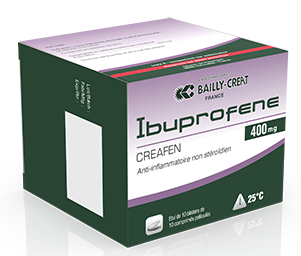
NSAIDs may also interact with certain medications, including: The risks associated with NSAIDs may increase for people who take the medication for a long time. These risks may be higher for people who drink alcohol frequently, are older adults, or have other health conditions. have previously had a heart attack or strokeĭoctors also associate NSAIDs with a risk of ulcers and holes and bleeding in the intestine and stomach.These risks may be even higher in people who: NSAIDs may increase the risk of stroke or heart attack, which may occur suddenly. For naproxen sodium, the daily dose should not be more than 1,375 mg.Ī person should follow the instructions on the medication guide and never exceed the recommended daily dose. DosageĪn adult can take ibuprofen at 800–1,200 milligrams (mg) per day. OTC NSAIDs include ibuprofen, available under brand names such as Motrin and Advil, and naproxen sodium, available under the brand name Aleve. Some types of NSAIDs are available OTC to treat mild to moderate pain. NSAIDs relieve inflammation and help with pain management. If your knee pain or injury is severe, visit your physician for a prescription medication that may improve your particular condition.People may treat mild to moderate knee pain with over-the-counter (OTC) medications, such as nonsteroidal anti-inflammatory drugs (NSAIDs) or acetaminophen. If you have modest knee pain caused by a simple strain, try an over-the-counter medication. "It's also expensive, but a lot of people will try it before surgery." "The whole concept of viscosupplementation was developed by rheumatologists to get some lubrication into the joint, but I found it doesn't work very well," Bargar says. These injections are helpful if you have early stage arthritis and haven't responded well to oral medication.
#PRESCRIPTION ANTI INFLAMMATORIES SERIES#
A series of three to five weekly injections is necessary to complete the therapy. Viscosupplementation is an injection of hyaluronic acid that lubricates your joint to reduce knee pain and increase mobility.These injections aren't permanent solutions, and you may need to return for repeat injections every few months (though not to exceed four injections in the same joint per year). Corticosteroids reduce inflammation and offer pain relief and are injected directly into the knee.Corticosteroids or viscosupplementation with hyaluronic acid can be injected when knee pain becomes severe.

Injecting medication to reduce knee pain is usually the step between taking oral medication and replacing arthritic knee joints with surgery.

"I would prescribe Celebrex for someone who isn't tolerating conventional NSAIDs because of GI side effects."īargar also advises people with knee pain who are taking large doses of ibuprofen regularly to have blood tests every four months to check for kidney toxicity and anemia. "I don't think work better than standard anti-inflammatories, they just don’t have the gastrointestinal side effects," he says. Celebrex was not shown to have a significant increased risk of heart problems. Rofecoxib (Vioxx) and others were removed from the market because it was discovered that they led to an increased risk of heart complications.īargar says that although the data wasn't completely clear, the consensus was to remove Vioxx and valdecoxib (Bextra), both COX-2 inhibitors, from the market because of associated cardiac issues. The only COX-2 inhibitor currently on the market is celecoxib (Celebrex). These drugs are typically used if your pain level is considered moderate to severe. These include prescription-strength NSAIDs and COX-2 inhibitors (meant to decrease gastrointestinal side effects like stomach bleeding). Prescription medication is usually a more potent pain reliever than the over-the-counter variety. Be sure to follow the instructions for any medication and read the warnings. Bargar points out that even though knee pain-relieving medication is available without a prescription, you should use care when taking it. These can help with simple sprains or even arthritis.ĭr.

The main over-the-counter drugs are acetaminophen (Tylenol and other brands) and non-steroidal anti-inflammatory drugs (or NSAIDs), including aspirin (such as Bayer), ibuprofen (Advil, Motrin), and naproxen (Aleve). Most medication that falls in the anti-inflammatory category also has analgesic effects, says William Bargar, MD, director of the Joint Replacement Center with Sutter General Hospital in Sacramento, Calif., and a spokesman for the American Academy of Orthopaedic Surgeons. Over-The-Counter Medication for Knee Pain But most medication used by people with knee pain falls into one of two categories: anti-inflammatories and pain relievers, also known as analgesics. There is a variety of medication available for knee pain, including both oral and injectable medication, depending on the source of your pain.


 0 kommentar(er)
0 kommentar(er)
